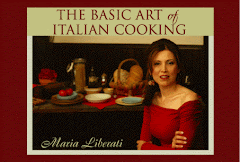Italian Researchers, Drs. Francesco Visioli and Claudio Galli, decided to take a look at the importance of antioxidants and the role it plays in the Mediterranean Diet. This research was conducted at the University of Milan in Italy. The researchers pointed out specifically that the traditional Mediterranean diets are a bit different from how diets are portrayed in Northern Europe and American diets. Something that particularly stands out is the fact that the traditional Mediterranean diets “include a significantly large amount of plant foods…[and] this notable difference between the two eating styles…has been associated with a lower risk of developing coronary heart disease and certain cancers.”
Something that may contribute to having coronary heart disease is having “high plasma cholesterol levels” which can be found in other popular diets in the US for example compared to the healthy eating style portrayed from the traditional Mediterranean Diet. These foods that are involved in the Mediterranean Diet have one of the best things your body could ask you for, and that would be; antioxidants. Antioxidants and its “excessive free radical production” have shown in a great number of studies that they have been linked to a reduction of the diseases that we have mentioned earlier. Through the research that these Italian scientists have conducted we are going to get into more depth about how the abundance of “fruits, vegetables, breads, nuts, seeds, wine and olive oil” have a great impact on individuals and their relation to “human disease.”
There are several different kinds of antioxidants; some of the antioxidants that these researchers focused on and its involvement with the Mediterranean diet are, “tocopherols, carotenoids, flavonoids, and polyphenols.” Again, unlike many other diets out there, the huge benefit of the Mediterranean diet is that it focuses much of its attention on fruits and vegetables and other many ingredients that are “rich in vitamins, minerals, and phytochemicals” that represent a “major source of antioxidants.” Let’s take a closer look at the specific antioxidant vitamins and how they contribute to specific diseases:
(1) Tocopherols
This particular antioxidant can be found in “nuts, wheat germ, vegetable oils (i.e., seed oils), margarine, mayonnaise, butter, and eggs.” Epidemiologic studies have shown a correlation between the intake of tocopherol and its protection against coronary heart disease and certain cancers.
(2) Carotenoids
The great thing about carotenoids is its special relationship with Vitamin A. They are found in “heavily pigmented fruits and vegetables such as carrots, broccoli, tomatoes, red peppers, and pumpkins” which are very commonly used in meals prepared particularly inspired by the Mediterranean diet. Epidemiologic studies have shown that plasma levels of carotenoids are “positively correlated with a lower incidence of [coronary heart disease] and lung cancer.”
[3] Vitamin C
Citrus fruits are a great provider of Vitamin C. Popular fruits in this category consist of oranges, tangerines, grapefruits and lemons. Leafy vegetables are also a great source of this. A very important fact to know is that Vitamin C is actually the “principal antioxidant of human plasma.”
[4] Phytochemicals (nonvitamin antioxidants)
Polyphenols fall into the category of phytochemicals and are very abundant in the Mediterranean diet especially when it comes to “its high proportion of fruits and vegetables and to the consumption of red wine and olive oil.” Wine, when consumed moderately, have been known to have beneficial effects to an individual’s health especially from the protection from coronary heart disease. We have talked previously on how great olive oil is and how you should make olive oil your best friend.
Overall, these scientists believe in the benefits of antioxidants but they do suggest that your best bet is to follow a healthful diet, such as the Mediterranean Diet, and make sure to consume your body with an “abundance of…fruits, vegetables, [moderation of] wine, and olive oil” and you’re on a healthier path for tomorrow.
Reference: (1) Visioli, Francesco and Galli, Claudio. “The Role of Antioxidants in the Mediterranean Diet.” Lipids, Vol.36, Supplement (2001).



No comments:
Post a Comment